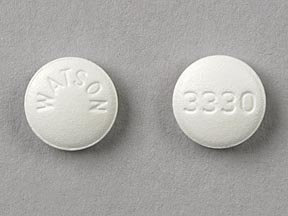Fexmid Side Effects
Generic name: cyclobenzaprine
Medically reviewed by Drugs.com. Last updated on Feb 14, 2025.
Note: This document provides detailed information about Fexmid Side Effects associated with cyclobenzaprine. Some dosage forms listed on this page may not apply specifically to the brand name Fexmid.
Applies to cyclobenzaprine: oral capsule extended release, oral suspension, oral tablet.
Common side effects of Fexmid
Some side effects of cyclobenzaprine may occur that usually do not need medical attention. These side effects may go away during treatment as your body adjusts to the medicine. Also, your health care professional may be able to tell you about ways to prevent or reduce some of these side effects.
Check with your health care professional if any of the following side effects continue or are bothersome or if you have any questions about them:
More common side effects
- blurred vision
- dizziness, drowsiness, or lightheadedness
- dryness of the mouth
Less common or rare side effects
- bloated feeling or gas, indigestion, nausea or vomiting, or stomach cramps or pain
- constipation
- diarrhea
- excitement or nervousness
- frequent urination
- general feeling of discomfort or illness
- headache
- muscle twitching
- numbness, tingling, pain, or weakness in hands or feet
- pounding heartbeat
- problems in speaking
- trembling
- trouble sleeping
- unpleasant taste or other taste changes
- unusual muscle weakness
- unusual tiredness
Serious side effects of Fexmid
Along with its needed effects, cyclobenzaprine (the active ingredient contained in Fexmid) may cause some unwanted effects. Although not all of these side effects may occur, if they do occur they may need medical attention.
Check with your doctor immediately if any of the following side effects occur while taking cyclobenzaprine:
Rare side effects
- clumsiness or unsteadiness
- confusion
- fainting
- mental depression
- problems in urinating
- ringing or buzzing in the ears
- skin rash, hives, or itching occurring without other symptoms of an allergic reaction listed above
- unusual thoughts or dreams
- yellow eyes or skin
Get emergency help immediately if any of the following symptoms of overdose occur while taking cyclobenzaprine:
Symptoms of overdose
- convulsions (seizures)
- drowsiness (severe)
- dry, hot, flushed skin
- fast or irregular heartbeat
- hallucinations (seeing, hearing, or feeling things that are not there)
- increase or decrease in body temperature
- troubled breathing
- unexplained muscle stiffness
- unusual nervousness or restlessness (severe)
- vomiting (occurring together with other symptoms of overdose)
For healthcare professionals
Applies to cyclobenzaprine: compounding powder, oral capsule extended release, oral tablet, oral and topical kit.
General adverse events
The most frequently occurring adverse reactions have included dry mouth, dizziness, fatigue, constipation, nausea, dyspepsia, and somnolence.[Ref]
Nervous system
- Very common (10% or more): Drowsiness (up to 38%)
- Common (1% to 10%): Dizziness, somnolence
- Postmarketing reports: Headache, serotonin syndrome, seizures, ataxia, tremors, hypertonia, convulsions, abnormal sensations, paresthesia, ageusia[Ref]
Elderly patients may be particularly susceptible to the sedation and confusion which may accompany cyclobenzaprine therapy.[Ref]
Psychiatric
- Common (1% to 10%): Irritability, mental acuity decreased, nervousness
- Postmarketing reports: Nervousness, confusion, disorientation, insomnia, depressed mood, anxiety, agitation, psychosis, abnormal thinking and dreaming, hallucinations, excitement[Ref]
Hypersensitivity
- Postmarketing reports: Anaphylaxis, angioedema, pruritus, facial edema, urticaria, rash[Ref]
Gastrointestinal
- Very common (10% or more): Dry mouth (up to 32%)
- Common (1% to 10%): Constipation, nausea, dyspepsia, abdominal pain, acid regurgitation, diarrhea
- Postmarketing reports: Unpleasant taste, vomiting, anorexia, gastritis, thirst, flatulence, tongue edema[Ref]
Hepatic
Cardiovascular
- Postmarketing reports: Syncope, tachycardia, arrhythmia, vasodilation, palpitation, hypotension[Ref]
Other
- Common (1% to 10%): Fatigue
- Postmarketing reports: Asthenia, malaise, vertigo[Ref]
Dermatologic
- Postmarketing reports: Sweating[Ref]
Genitourinary
- Postmarketing reports: Urinary frequency and/or retention[Ref]
Musculoskeletal
- Postmarketing reports: Local weakness, dysarthria, muscle twitching[Ref]
Ocular
- Postmarketing reports: Blurred vision, diplopia, tinnitus[Ref]
Respiratory
- Common (1% to 10%): Upper respiratory infection, pharyngitis[Ref]
References
1. (2016) "Product Information. Amrix (cyclobenzaprine)." A-S Medication Solutions
2. (2001) "Product Information. Flexeril (cyclobenzaprine)." Merck & Co., Inc
Frequently asked questions
- How much cyclobenzaprine can I take?
- How long does it take for Flexeril to work?
- Is cyclobenzaprine a controlled substance or addictive?
- How long does Flexeril stay in your system?
- Can I take cyclobenzaprine and Tylenol together?
More about Fexmid (cyclobenzaprine)
- Check interactions
- Compare alternatives
- Reviews (4)
- Drug images
- Dosage information
- During pregnancy
- Drug class: skeletal muscle relaxants
- Breastfeeding
- En español
Patient resources
Other brands
Professional resources
Other brands
Related treatment guides
Further information
Fexmid side effects can vary depending on the individual. Always consult your healthcare provider to ensure the information displayed on this page applies to your personal circumstances.
Note: Medication side effects may be underreported. If you are experiencing side effects that are not listed, submit a report to the FDA by following this guide.

